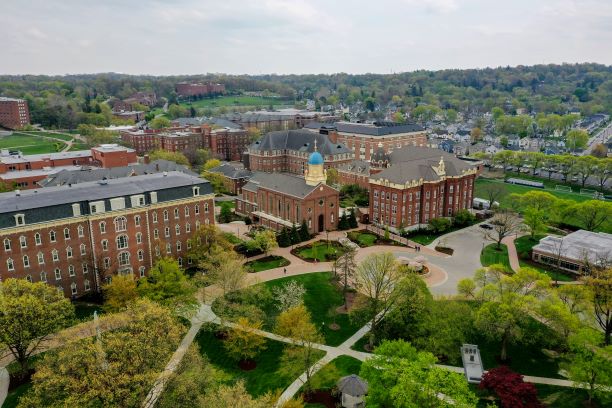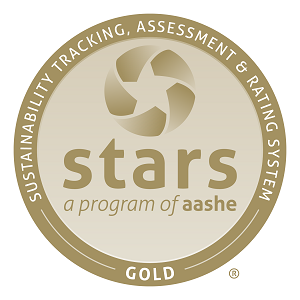
Energy & Sustainability
Energy & Sustainability
Inspiring Progress, Receiving Recognition
We envision the University of Dayton as a sustainable community that provides for the social and economic needs of its current and future members, while continually promoting and strengthening the University's distinctive Catholic and Marianist identity.
To guide that vision, in 2014 the University created its first Policy on Sustainability. This campus-wide policy promotes greater efficiency through sustainable and environmentally sound practices while encouraging the use of campus as a living laboratory for students and faculty to meet today's sustainability challenges.
In 2023, more than 50 sustainability goals for campus operations were created through a collaborative process that involved several offices across the University. These goals were set to enhance the sustainability of ten campus operational areas including food and dining; fleet and transportation; procurement and waste; water; energy; and buildings and grounds. Opportunities for student engagement through curriculum, research, and other hands-on learning experiences are incorporated throughout all ten focus areas and are essential for the successful implementation and tracking of each.
UD's STARS reports reflect campus-wide efforts to become a leader in sustainability education and operations. STARS is a transparent, self-reporting framework for colleges and universities to measure their sustainability performance. Reporting to STARS since 2011, the University of Dayton earned its third gold rating in 2022.
The League of American Bicyclists has recognized the University of Dayton as a Bicycle Friendly University since 2019. Renewed in 2023, the bronze rating showcases UD's dedication to promoting and providing a more bikeable campus for students, staff, and visitors.

UD's Solar Prairie at Curran Place earned high marks for pollinators from the Ohio Pollinator Habitat Initiative. UD works with OPHI to improve and create pollinator habitat on campus and raise awareness of the importance of pollinators in our campus landscape.
With over 9 acres of pollinator habitat on campus, UD earned Xerces Society Bee Campus designation. The Bee Campus program recognizes colleges and universities providing healthy habitat rich in native plants that support native bumble bees, mason bees, monarch butterflies, hummingbirds, and other wildlife. Member campuses also provide outreach and education that promote pollinator conservation.



